Unrest in Kenya
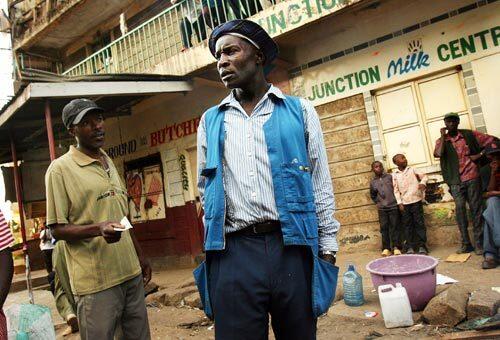
Asiah Mwale, 40, was robbed at his donut stand in the Huruma neighborhood of Nairobi. Tribal violence has erupted in the country over disputed election results. (Carolyn Cole / Los Angeles Times)
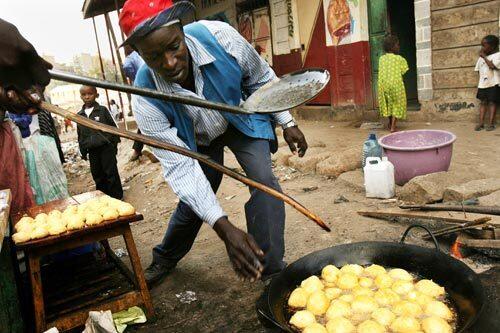
Asiah Mwale cooks donuts in Huruma, getting on with life after robbers stole his money and dough. (Carolyn Cole / Los Angeles Times)
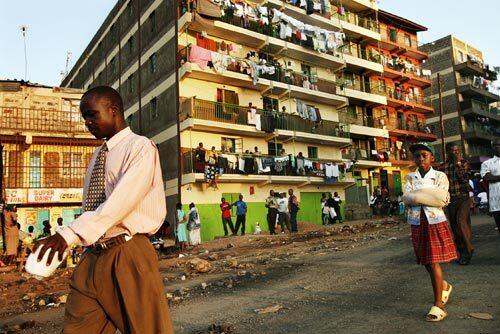
In the densely populated Huruma neighborhood of Nairobi, calm had returned on Wednesday, though tension was in the air. (Carolyn Cole / Los Angeles Times)
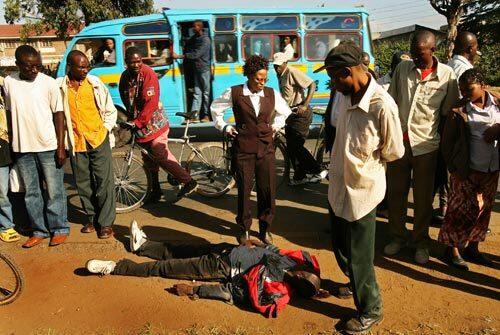
The body of Jackson Muthiana, 20, lies in the road. The tradesman, apparently the victim of tribal violence, usually rode the bus from his neighborhood outside Nairobi into town. His body was found halfway there. (Carolyn Cole / Los Angeles Times)
Advertisement
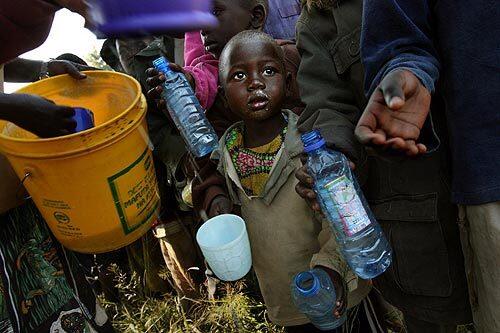
Children displaced by political and ethnic violence line up for a cup of warm milk in Tigoni, Kenya. (Carolyn Cole / Los Angeles Times)
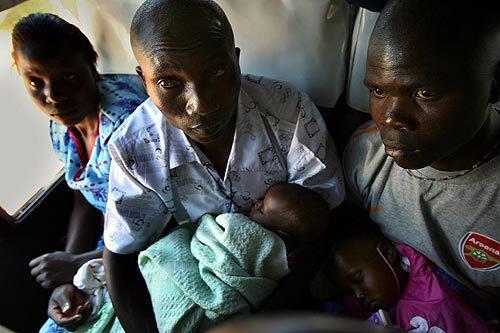
In Tigoni, Morris Nyamonde, center, and relatives ride a bus headed north. They fled their hometown and don’t know when they’ll be able to return. (Carolyn Cole / Los Angeles Times)
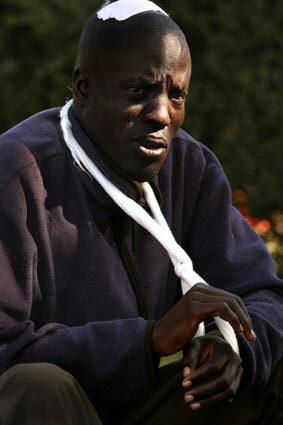
Bernard Oumu was attacked by men with machetes who broke his arm and beat his head. He is living at the police station in Tigoni with hundreds of other people who fled the violence. (Carolyn Cole / Los Angeles Times)
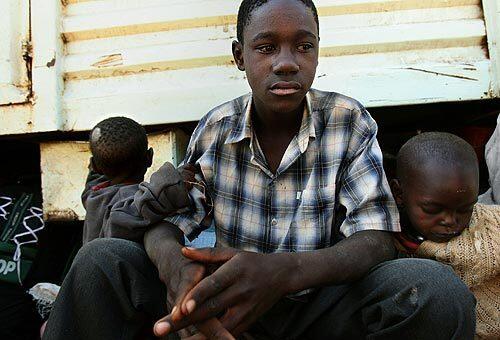
I was just shaking and fearing for my life ... When they found I was circumcised they let me go, said Roy Ochiengwa, 17, who was walking in Limuru when he was stopped by about 20 armed Kikuyus who were looking for Luos to attack. Ochiengwa is a Luhya. (Carolyn Cole / Los Angeles Times)
Advertisement
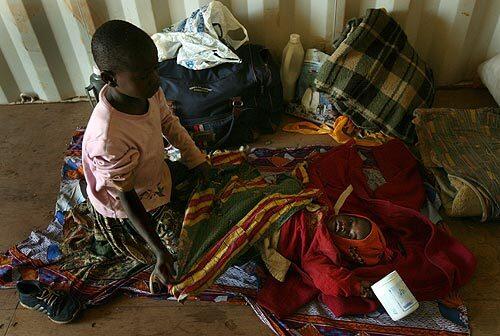
A young girl tends to her sister inside a shipping container where they have been sleeping since ethnic violence forced them to flee their home. (Carolyn Cole / Los Angeles Times)
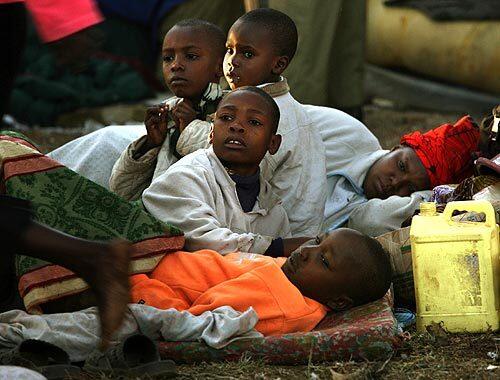
A homeless family in Kenya wakes to another day in a park. More than 250,000 people so far have been left homeless by the violence and many are living in shelters or in public parks. (Carolyn Cole / Los Angeles Times)
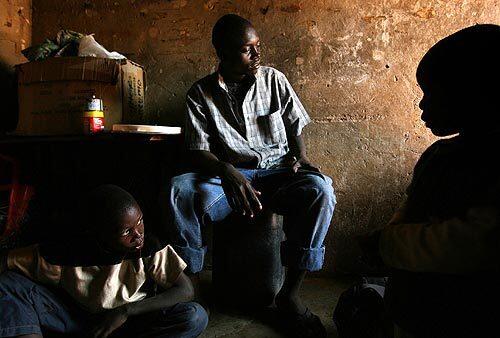
Kelvin Oduor, 20, is prepared to rally again in support of opposition candidate Raila Odinga, who has agreed to negotiate a settlement. Oduor and his brothers and sisters live in a Kibera slum with their mother, where food is in low supply. (Carolyn Cole / Los Angeles Times)
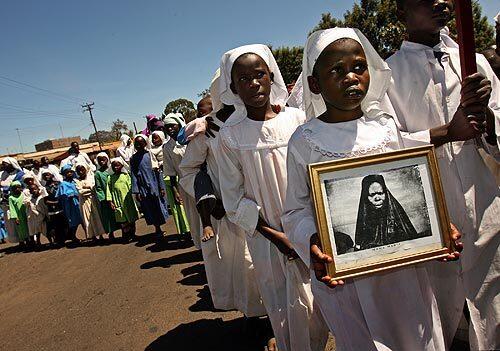
In the Kibera neighborhood of Nairobi, Kenya, a procession of young members of the Legio Maria Church, a branch of the Roman Catholic Church, makes its way through the streets before holding a prayer session in the neighborhood. (Carolyn Cole / Los Angeles Times)
Advertisement
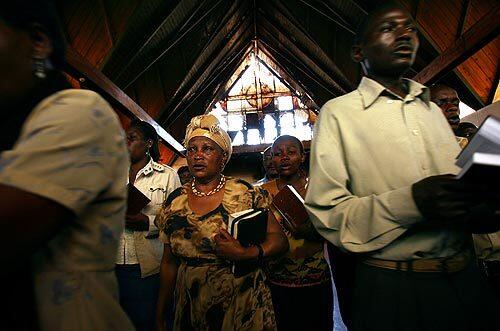
At Kibera Lutheran Church in Nairobi, a small congregation gathers for Sunday service. The church was burned in postelection violence. (Carolyn Cole / Los Angeles Times)
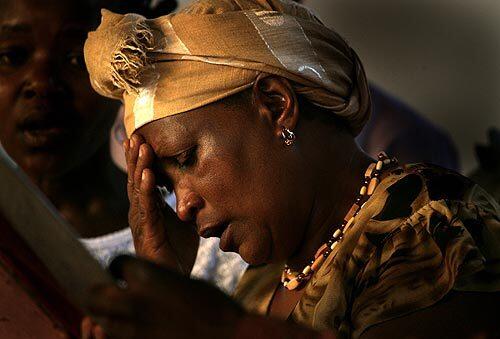
Anne Mae Wanjiku attends service at Kibera Lutheran Church. The violence in her country has left her distraught. (Carolyn Cole / Los Angeles Times)
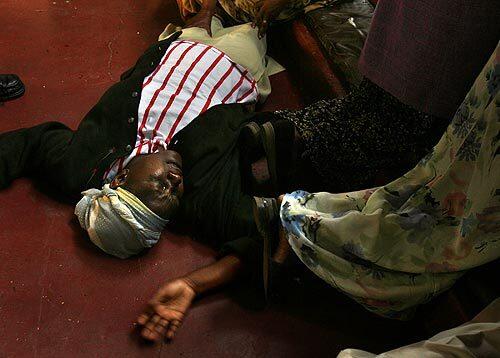
Rebecca Muthoni, who lost her home in the postelection violence, is overcome with emotion during the service at Kibera Lutheran Church. “I have pain in my heart,” she says. (Carolyn Cole / Los Angeles Times)
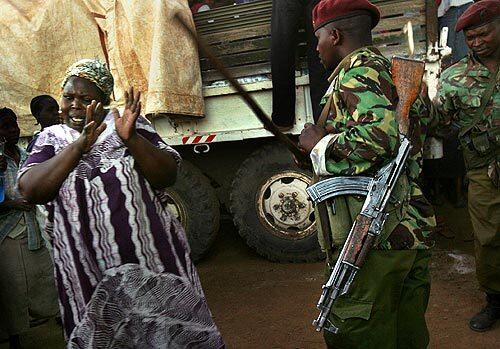
A woman cowers as a paramilitary police officer uses a stick to get her to move. (Carolyn Cole / Los Angeles Times)
Advertisement
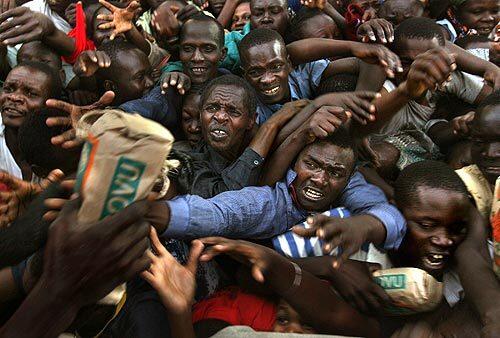
In the Mathare district of Nairobi, people struggle for food being handed out by the Red Cross. (Carolyn Cole / Los Angeles Times)
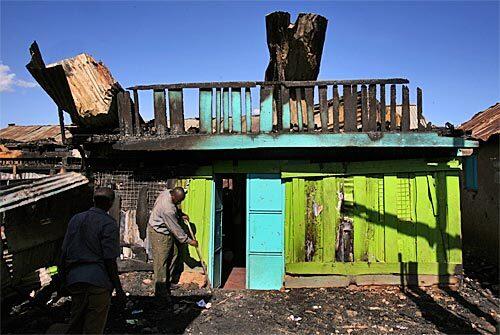
Violence in a Nairobi neighborhood called Ghetto left this Christian church burned. The World Food Program warned Jan. 4 that as many as 100,000 people face starvation in western Kenya because of election-related tribal violence. (Carolyn Cole / Los Angeles Times)
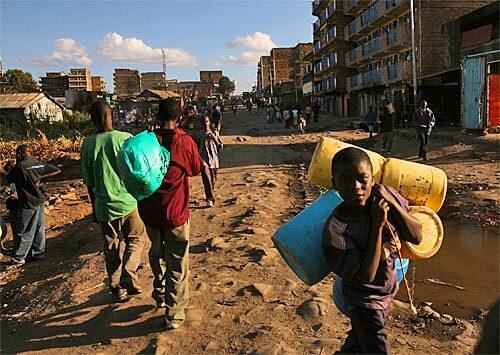
The Rift Valley in western Kenya has seen tens of thousands flee some of the worst violence, including the burning of a church near Eldoret that killed about 35 people who had sought refuge. (Carolyn Cole / Los Angeles Times)
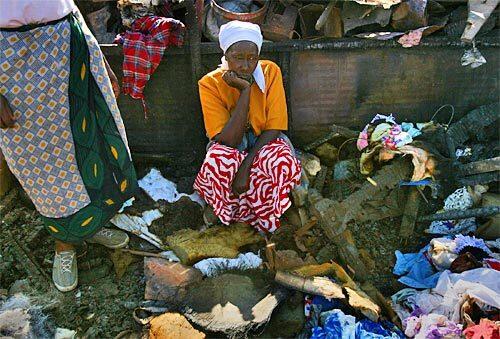
Margaret Wawira Wanjiru sits amid the rubble of what was her home. She lost everything she owned. (Carolyn Cole / Los Angeles Times)
Advertisement
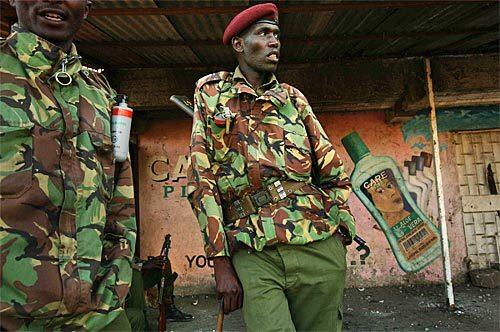
Members of the Kenyan paramilitary police keep watch over Ghetto. (Carolyn Cole / Los Angeles Times)
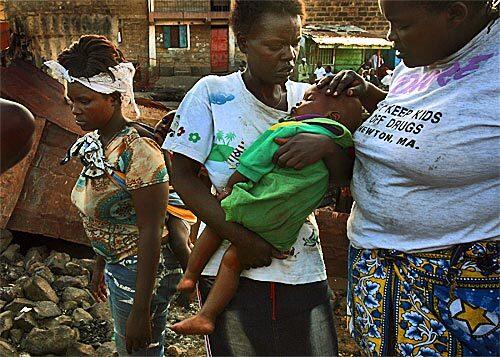
More than 180,000 Kenyans have fled their homes because of violence, the United Nations reported, and 500,000 will need aid this month, according to the International Committee of the Red Cross. (Carolyn Cole / Los Angeles Times)
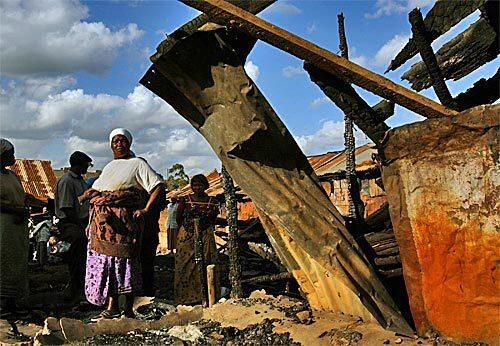
Because of the poor security situation, the Red Cross has had difficulty delivering food to the countryside. (Carolyn Cole / Los Angeles Times)
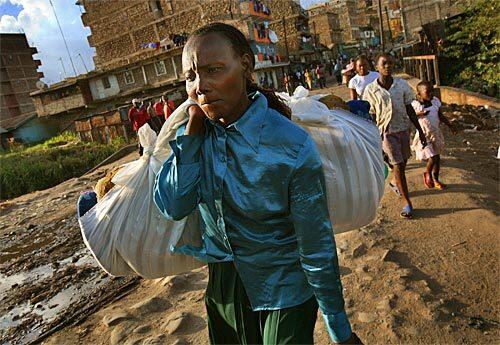
Charity Wanjiru, 30, carries her belongings across a bridge that divides tribes in the area. She is relocating her family, including her four children. (Carolyn Cole / Los Angeles Times)
Advertisement
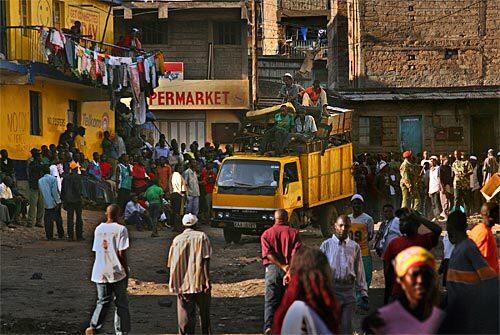
A truck moves through the Mathare district of Nairobi, where violence had ebbed but demonstrations lingered. (Carolyn Cole / Los Angeles Times)







